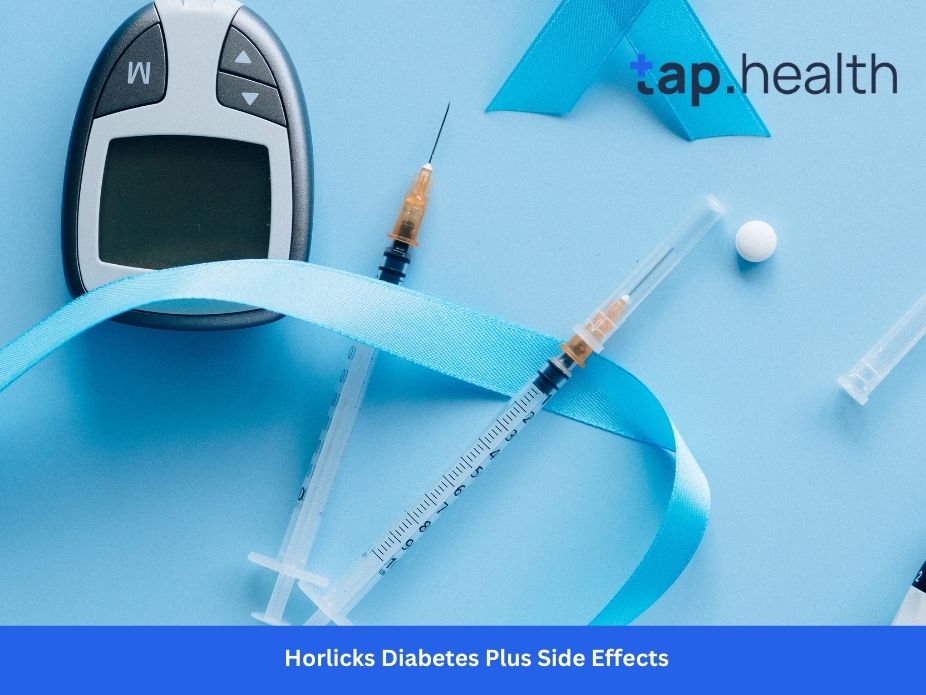Vitamins are essential for maintaining overall health, but could they be a trigger for headaches? While most people associate vitamins with health benefits, it’s important to know that, in some cases, certain vitamins can lead to adverse effects, including headaches. If you’ve ever experienced a headache after taking a multivitamin or vitamin supplement, you may be wondering if vitamins are to blame.
In this article, we’ll explore the potential link between vitamins and headaches, covering everything you need to know, from which vitamins might cause headaches to how to manage this issue. We’ll also dive into how vitamin deficiencies can contribute to headaches and how to ensure you’re getting the right amount of vitamins for your health needs.
Can Vitamins Cause Headaches?
Headaches are a common problem, affecting millions of people worldwide. The causes of headaches can be complex and varied, with factors ranging from stress and dehydration to certain foods or medications. But can vitamins cause headaches? The answer is yes, under specific circumstances. While vitamins are crucial for the body’s well-being, taking too much of certain vitamins or having an imbalance in vitamin intake can lead to headaches.
Why Do Vitamins Cause Headaches?
Vitamins, particularly when taken in high doses, can lead to various side effects, including headaches. Some vitamins, like vitamin D, B vitamins, and vitamin A, have been associated with headaches when consumed in excess. But why does this happen?
- Overuse of Fat-Soluble Vitamins:
Fat-soluble vitamins like vitamins A, D, E, and K can build up in the body if taken in excess, as they are stored in fat cells. This buildup can potentially lead to toxicity, which may cause headaches as a side effect. - Excess of Water-Soluble Vitamins:
Water-soluble vitamins, such as B vitamins and vitamin C, are generally flushed out of the body when taken in excess. However, some individuals may still experience side effects, including headaches, especially if they are taking very high doses. - Vitamin Imbalance:
A vitamin imbalance—such as taking too much of one vitamin while lacking another—can also lead to headaches. For example, high doses of one B vitamin might interfere with the balance of others, potentially triggering headaches. - Changes in Neurotransmitter Levels:
Some vitamins, particularly B vitamins like B6 and B12, affect neurotransmitter function in the brain. If these neurotransmitters become imbalanced due to vitamin intake, it can lead to headaches.
Which Vitamins Are Most Likely to Cause Headaches?
Not all vitamins are likely to cause headaches, but there are a few that have been linked to this issue. Let’s take a closer look at the vitamins that are most likely to cause headaches when taken in excessive amounts or out of balance.
1. Vitamin B6 (Pyridoxine)
Vitamin B6 is a water-soluble vitamin that plays a key role in brain function, nerve health, and the production of neurotransmitters like serotonin. While B6 is essential for health, taking it in excess (usually in the form of supplements) can lead to headaches and other symptoms like nerve damage.
How Vitamin B6 May Cause Headaches:
- High doses of vitamin B6 can disrupt the nervous system and may cause headaches as a side effect.
- Long-term use of vitamin B6 supplements above the recommended daily amount can lead to nerve damage, which may contribute to headache symptoms.
Safe Dosage:
The recommended daily intake for vitamin B6 is about 1.3 to 2.0 mg for adults. Supplementation above 100 mg per day can lead to adverse effects, including headaches.
2. Vitamin B12 (Cobalamin)
Vitamin B12 is another B vitamin that is involved in the production of red blood cells and the maintenance of nerve function. While B12 deficiency can cause fatigue and other symptoms, too much B12 from supplements can sometimes lead to headaches.
How Vitamin B12 May Cause Headaches:
- High doses of B12 can cause a buildup of the vitamin in the body, which may lead to headaches.
- Some people may be sensitive to B12 supplements, and even normal doses can cause headaches in certain individuals.
Safe Dosage:
The recommended daily intake for vitamin B12 is about 2.4 mcg for adults. Although vitamin B12 is generally considered safe, excessive amounts above 1,000 mcg may lead to headaches in some people.
3. Vitamin D
Vitamin D is essential for calcium absorption and bone health, but excessive vitamin D intake can lead to toxicity, a condition known as hypervitaminosis D. Headaches are a common symptom of vitamin D toxicity.
How Vitamin D May Cause Headaches:
- Excessive vitamin D can lead to high calcium levels in the blood (hypercalcemia), which can cause headaches, nausea, and other symptoms.
- High doses of vitamin D supplements (greater than 4,000 IU per day) are more likely to cause toxicity.
Safe Dosage:
The recommended daily intake for vitamin D is about 600 IU for adults, with an upper safe limit of 4,000 IU per day. Taking more than this can cause toxicity, leading to headaches and other health issues.
4. Vitamin A
Vitamin A is crucial for vision, immune function, and skin health, but too much vitamin A can be toxic. This can lead to a variety of symptoms, including headaches.
How Vitamin A May Cause Headaches:
- Excessive vitamin A intake can cause toxicity, leading to headaches as one of the common symptoms.
- High doses of vitamin A can increase intracranial pressure, which may lead to severe headaches and other neurological symptoms.
Safe Dosage:
The recommended daily intake for vitamin A is about 700 mcg for adult women and 900 mcg for adult men. The upper safe limit is 3,000 mcg per day. Exceeding this amount can lead to toxicity and headaches.
5. Vitamin C
Vitamin C is a water-soluble vitamin known for its antioxidant properties and immune support. While vitamin C toxicity is rare, taking extremely high doses can cause side effects, including headaches.
How Vitamin C May Cause Headaches:
- High doses of vitamin C (greater than 2,000 mg per day) may cause headaches, digestive disturbances, and kidney stones.
- Some people may be sensitive to vitamin C supplements, which could trigger headache symptoms.
Safe Dosage:
The recommended daily intake for vitamin C is 75 mg for women and 90 mg for men, with an upper safe limit of 2,000 mg per day.
How to Avoid Vitamin-Induced Headaches
If you experience headaches after taking vitamins, it may be due to taking high doses or having an imbalance in your vitamin intake. Here are some tips to avoid vitamin-induced headaches:
1. Follow Recommended Dosages
Always stick to the recommended daily doses for vitamins, whether you’re getting them from food or supplements. Taking more than the recommended amount can increase the risk of side effects like headaches.
2. Consult a Healthcare Provider
If you’re taking vitamin supplements and experiencing headaches, it’s a good idea to consult a healthcare provider. They can help you determine if you’re taking too much of a certain vitamin and adjust your dosage accordingly.
3. Balance Your Vitamin Intake
Ensure that you’re getting a balanced intake of vitamins from both food and supplements. Avoid taking excessive amounts of one vitamin, as it can disrupt the balance and lead to side effects.
4. Stay Hydrated
Dehydration can contribute to headaches, especially when taking supplements. Drink plenty of water throughout the day to stay hydrated and reduce the likelihood of headaches.
5. Take Vitamins With Food
Taking vitamins with food can help reduce the chances of headaches and other digestive issues. Some vitamins, particularly fat-soluble ones, are better absorbed when consumed with food.
Can Vitamin Deficiency Cause Headaches?
While vitamins in excess can cause headaches, deficiencies in certain vitamins can also contribute to headaches. A lack of key vitamins like vitamin B12, B6, and vitamin D can lead to various neurological symptoms, including headaches.
For example:
- Vitamin B12 deficiency can cause nerve damage and lead to headaches, fatigue, and mood changes.
- Vitamin D deficiency has been associated with chronic headaches and migraines.
If you suspect a vitamin deficiency, it’s important to seek medical advice for proper testing and supplementation.
Expert Contribution
Based on consensus from medical toxicology and nutrition research.
Dr. Rajesh Kumar (General Physician, 20+ years experience) explains:
“Patients often treat vitamins like candy because they are sold over the counter. They assume ‘natural’ means ‘safe in any quantity.’ This is dangerous.
The most frequent issue I see is with fat-soluble vitamins (A, D, E, K). Unlike water-soluble vitamins (B and C) which you pee out if you take too much, fat-soluble vitamins stay in your body tissues. They can reach toxic levels that cause intracranial pressure and severe headaches.
My advice? Never start a high-dose single vitamin (like Vitamin A or D) without a blood test confirming you actually have a deficiency. If you just want general health, a standard multivitamin is safer—but take it with food to slow down absorption.”
Recommendations Grounded in Proven Research and Facts
If you suspect your vitamins are causing your headaches, follow this step-by-step protocol to stop the pain and supplement safely.
1. The “With-Food” Rule
Fact: Taking vitamins on an empty stomach triggers a rapid spike in blood concentration, which can shock your system and cause headaches and nausea. Recommendation: Always take your supplements halfway through a solid meal (lunch or dinner). The fats in your food help absorption and buffer the stomach.
2. Hydrate, Hydrate, Hydrate
Fact: Vitamins like C and B-Complex require water to be dissolved and excreted. If you are dehydrated, the concentration of vitamins in your blood rises, leading to dehydration headaches. Recommendation: Drink at least one full glass of water (250ml) immediately when taking your pill.
3. Check the “Upper Limit” (UL)
Fact: Every vitamin has a “Tolerable Upper Intake Limit.” Recommendation: Check your bottle labels.
- Vitamin A: Do not exceed 3,000 mcg (10,000 IU).
- Vitamin D: Do not exceed 4,000 IU daily unless prescribed.
- Vitamin C: Do not exceed 2,000 mg.
4. Switch to “Whole Food” Vitamins
Fact: Synthetic vitamins (isolated in a lab) are harder for the body to process than vitamins derived from food sources. Recommendation: Look for brands that say “Whole Food Multivitamin” or “Derived from Fruits and Vegetables.” These are often gentler and lack the harsh dyes that trigger headaches.
5. The Elimination Test
Fact: It is hard to know which pill is the problem if you take a handful at once. Recommendation: Stop taking ALL supplements for 3 days. If the headache stops, introduce them back one by one, waiting 3 days between each new addition. You will quickly identify the culprit.
FAQ on Can Vitamins Cause Headaches?
1. Can high doses of vitamins cause headaches?
Yes, high doses of certain vitamins, especially fat-soluble ones like vitamins A and D, can lead to toxicity and cause headaches.
2. Which vitamins are most likely to cause headaches?
Vitamins B6, B12, D, A, and C are most commonly linked to headaches when taken in excess.
3. How can I avoid headaches from vitamins?
To avoid headaches, follow the recommended daily dosages, consult a healthcare provider for advice, balance your vitamin intake, and stay hydrated.
4. Can vitamin D cause headaches?
Yes, excessive vitamin D intake can cause headaches, especially if it leads to high calcium levels in the blood (hypercalcemia).
5. Can a vitamin B12 deficiency cause headaches?
Yes, a vitamin B12 deficiency can lead to neurological symptoms, including headaches, fatigue, and memory problems.
Conclusion
While vitamins are essential for maintaining good health, taking them in excess or without proper balance can lead to headaches and other side effects. Certain vitamins, such as B6, B12, D, A, and C, have been linked to headaches when taken in high doses. To avoid vitamin-induced headaches, stick to recommended dosages, consult with a healthcare provider, and ensure that you maintain a balanced intake of essential vitamins. If you experience frequent headaches, it’s important to consider the possibility of vitamin deficiencies or imbalances and seek professional advice.
Mayo Clinic: Vitamin D & Toxicity Vitamin D – Mayo Clinic (Covers proper dosage and the risks of taking too much, including toxicity symptoms).
National Institutes of Health (NIH): Niacin (Vitamin B3) Niacin Fact Sheet for Consumers – NIH (Explains the “Niacin flush,” side effects like headaches, and safe upper limits).
National Institutes of Health (NIH): Vitamin A Vitamin A Fact Sheet – NIH (Details the risks of chronic high-dose Vitamin A intake and its link to intracranial pressure/headaches).



